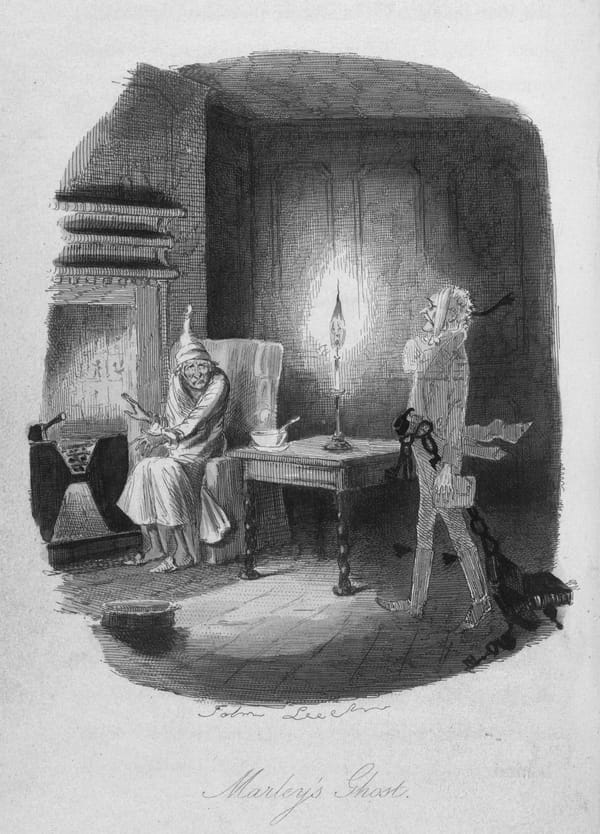The modern atheist loves to say that he doesn’t need to be frightened by fairy tales of hell into behaving well. He can be good and kind and brave without such things. He may speak for himself. I am not so sure. And I offer, as evidence to the contrary, one of the most popular and influential pieces of fiction of the last 200 years. Thanks to its sentimental ending—unbearable to me—Charles Dickens’s A Christmas Carol has gained a reputation as a kindly, optimistic book, in the same class as Frank Capra’s film It’s a Wonderful Life. In fact, both these works contain some fairly grim reflections. Unsaved Pottersville, compared with its blessed twin Bedford Falls, is quite close to hell, especially at Nick’s sinister bar where men drink to get drunk, quickly, and the unfortunate are flung out into the nearest snowdrift, while the clientele jeer and the pounding music plays on.
Look more carefully at Dickens, and you see something else. Even some modern movies based on A Christmas Carol contain elements of fear and dismay. The best of these is Scrooged, in which Bill Murray plays a TV executive who is inventively nastier than Ebenezer Scrooge—just as the modern age is inventively nastier than Victorian London. The film contains a brief but memorable glimpse of hell, reached by a modern elevator but just as timelessly terrifying (and overcrowded) as it is when portrayed by the Flemish masters or by the great makers of stained-glass windows.
“What if a great deal of the charitable side of Christmas is in fact driven by an unstated fear?”
What if there is such a place? It is not done to discuss it these days, when modern churchmen have told us that it really is not all that much to worry about, if it exists at all. Good heavens, if you believe in that, what other weird things might you not believe in? And what if a great deal of the charitable side of Christmas is in fact driven by an unstated fear that maybe there is not merely justice in the universe, but a hard, piercing justice remembering things about us that we have forgotten—the kind of justice we have largely abandoned in our civilized nations?
